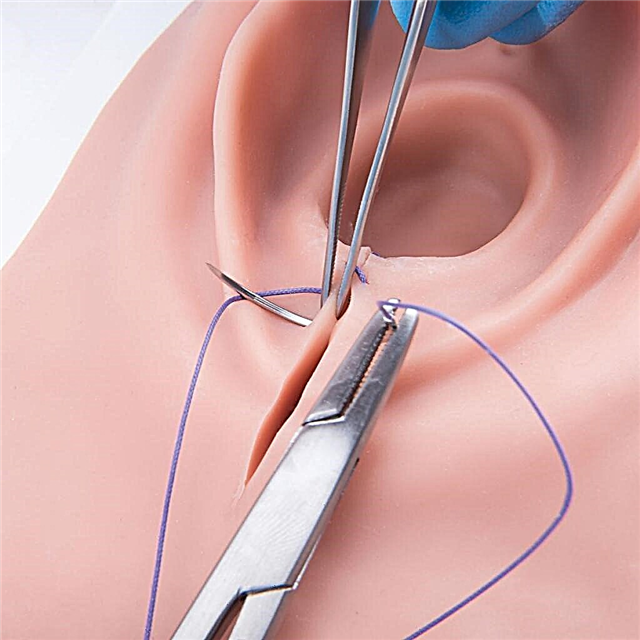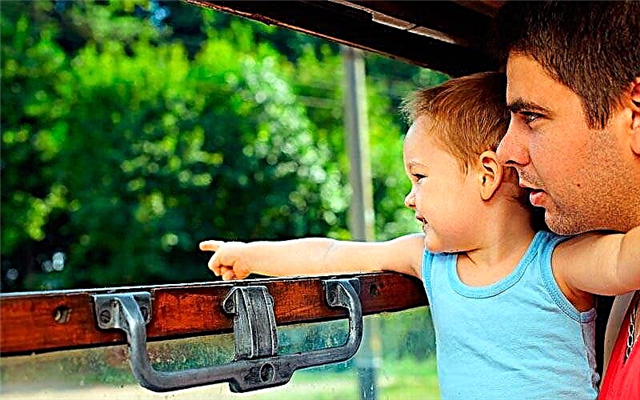
If a child urinates in bed during a night's sleep, they talk about nocturnal enuresis. This problem is very common in childhood. Modern medicine does not classify it as a disease, but calls it a stage of development, during which the child masters the functions of his own body.
Kinds
Depending on the time of the formation of the "sentry" reflex, the following types of incontinence are distinguished:
- Primary. The child has not yet learned to control urination. This is the mildest form, which in 98% of children goes away on its own without therapy.
- Secondary. The child has already learned to control the bladder in the past and has been dry for more than 6 months.

Depending on the symptoms, enuresis is:
- Uncomplicated. The child has no other abnormalities besides enuresis.
- Complicated. The baby has inflammatory diseases, developmental disorders and other pathologies.
Depending on the child's reaction to the problem, the following types are distinguished:
- Neurotic. This form of incontinence is typical for a shy and very shy child with shallow sleep. The kid is very worried about failures at night, which leads to sleep disturbances.
- Neurosis-like. This form of enuresis occurs in children with hysterical behavior. The child is not very worried when he sees a wet bed until adolescence, when incontinence can cause isolation and neurosis.
At what age is this the norm?
Normally, a child learns to control his urination at night by the age of 6. At the same time, about 10% of children who have turned 6 years old have not mastered such control. Over time, the problem becomes more rare. By the age of 10, night incontinence is noted in 5% of children, and by the age of 18 - only in 1%. Boys have the problem twice as often.

Causes
Boys
The problem of incontinence is more common in boys. Such factors lead to it:
- Birth injury, affecting the spinal cord or brain.
- Long-term formation of a conditioned reflex. Some boys develop this reflex later than their peers.
- Stressful situations. Enuresis can occur as a result of severe fright, constant quarrels between parents, school change, moving and similar factors that greatly influenced the child's psyche.
- Heredity. If incontinence was noted in both parents, then the problem is possible in 70-80% of cases. If one of the parents suffered from enuresis, the boy will have such a problem in 30-40% of cases.
- Inflammatory diseases of the bladder. They are determined by the results of urine analysis. Congenital urinary tract pathology can also lead to incontinence.
- Long-term use of diapers. The child gets used to the fact that after urinating the bed is neither cold nor wet.
- Hormonal disorders. With insufficient production of hormones that affect the functioning of the bladder, the volume of urine excreted and its concentration, the child becomes incontinent.
- Hyper-care. It is often observed in an incomplete family, when a boy is raised by his grandmother or mother. Because of too much guardianship, the child subconsciously behaves like a toddler, because he has a feeling that he is small.
- Hyperactivity. When the child is highly excitable, the activity of the processes in the brain prevails over the signals from the bladder. And the brain simply does not "hear" the urge to urinate at night.
- Lack of parental attention. With such a deficit, the child subconsciously does everything in order to feel cared for by loved ones.
- Allergies. It is noted that in boys with allergic reactions, as well as with bronchial asthma, episodes of enuresis are a fairly common problem.

Girls
Due to the peculiarities of the nervous system, girls learn to control the work of the bladder faster and start going to the potty earlier, so the problem of enuresis appears much less frequently in them, and if it does arise, it is easier to cure it in the girl.
Incontinence can occur in the following situations:
- If the mastery of reflexes is slightly delayed. Some girls learn to control reflexes later than their peers.
- As a consequence of stress or psychological trauma. A girl can be affected by the divorce of her parents, the appearance of a second child in the family, a change of place of residence, a transfer to a new kindergarten and similar factors.
- With a very deep sleep. It is a sign of either congenital features of the girl's nervous system, or overwork.
- If the girl drinks a lot at night. Soldering during a cold can also lead to a "wet bed".
- With the influence of a hereditary factor. It causes the secretion of the hormone vasopressin, which decreases urine production at night. Lack of this hormone can be passed on from parents. If one of them had enuresis during childhood, there is a 30 percent chance of incontinence in the daughter. If both parents had a problem, the girl's risk of bedwetting rises to 75%.
- With injuries of the spinal cord and spine. They disrupt the pathways for conducting impulses from the brain, as a result of which they do not reach the bladder.
- If there is a developmental delay. If the girl lags behind, the formation of all reflexes occurs later.
- If a urinary tract infection develops. Due to the wide and shorter urethra in girls, microorganisms developing on the genitals can enter the bladder.

In adolescents
At this age, enuresis is noted in 5% of children and it is often secondary, but it can also last from an early age.
The main reasons due to which incontinence in a teenager is possible are:
- Stress. The child may be overly sensitive to the stressful environment in school or family, suffer from physical punishment, conflicts with peers, moving, the loss of a loved one and other stressful situations.
- Mental illness. Neuroses and depressive states can lead to incontinence, which is further aggravated by feelings and adolescent complexes.
- Congenital pathologies. They can be found both in the nervous system and in the organs of the urinary system.
- Hereditary tendency. As in a younger age, enuresis in adolescents may be due to such a problem in his parents.
- Injuries. They can lead to impaired urination reflex.
- Hormonal adjustment. Hormone levels change during puberty, so the production of hormones that affect urination may be interrupted.

Psychological problems
Nocturnal enuresis is almost always a significant problem for a child, and if incontinence develops in a teenager, it can cause a serious inferiority complex. It is difficult for children with bedwetting to communicate with their peers, even if other children are not aware of the problem.
The child feels inferior, withdrawn, seeks to avoid contact with other children, seeks solitude. This can leave an imprint on the character - in children with incontinence there is anger, indecision, aggressiveness, insecurity, which are carried over into adulthood.
Especially often, such changes occur when parents ridicule the child, if the baby is punished and scolded for wet sheets. That is why parents must be empathetic and caring, and their reaction to bedwetting must be delicate and correct.

Diagnostics
If the child is 6 years old, and he does not yet fully control the bladder, an additional examination should be performed. The child is prescribed urine tests (general urine analysis and a sample according to Zimnitsky) and ultrasound of the excretory system. In many cases, MRI, cystoscopy, EEG, X-ray examination, examination by a neurologist, endocrinologist, psychiatrist and other specialists are additionally prescribed.
Treatment
There are many ways to eliminate incontinence, but their effectiveness differs in the situation with each specific child.
Medicines
- If enuresis is associated with hyperactivity and excitability of the nervous system, the child is prescribed sedatives.
- When inflammatory and infectious processes are detected, antibiotics are prescribed.
- If the development of the nervous system is delayed, nootropic drugs may be prescribed to the child.
- In case of disturbances in the production of hormones that affect the composition and volume of urine, as well as the functioning of the bladder, desmopressin is prescribed.
Urinary alarm clock
This is a very effective method of combating incontinence, which consists in using a special alarm clock. A sensor is connected to it, which is placed in the child's panties. At the first drops of urine that hit the sensor, it is triggered by sending a signal to the alarm, as a result of which the child is forced to wake up, turn off the device and go to the toilet.

Other methods
Physiotherapy is recommended to improve the functioning of the bladder and nervous system. The child can be prescribed magnetotherapy, electrophoresis, therapeutic shower, acupuncture, electrosleep, a course of therapeutic baths and other methods of physiotherapy. Remedial gymnastics and massage are also recommended.
The effect and application of psychotherapy is noted. The psychologist will teach the child to relax and use the self-hypnosis technique. Many are helped by keeping a diary, in which dry nights are designated by suns, and for a certain number of such suns in a row, the child is entitled to encouragement.
In addition, a child with enuresis is recommended to establish a daily regimen and follow a certain diet. Drinks in the evening are limited, and at night the child is given food to help retain water in the body. It is important to ensure a sufficient intake of vitamins in the children's diet.

Folk recipes
One of the excellent means of treating enuresis is popularly considered honey. It is advised to eat it before bedtime to retain fluid in the body at night and to calm the nervous system.
Also, the child can be given:
- A decoction of young cherry twigs and dried blueberry stems. Having infused the brewed plants for 15 minutes, add a little honey to the drink and give such a decoction to the child twice or three times a day, a glass between meals.
- Dill seed decoction. Seeds dried in a pan (2 tablespoons) are brewed in an enamel container with 0.5 liters of boiling water and left for four hours. Drinking such a remedy should be before meals for 14 days, twice a day.
- Infusion of centaury and St. John's wort. Each plant in dry chopped form, take half a glass and brew 500 ml of boiling water. Having insisted for three hours, the decoction is given to the child before meals 3-4 times daily for two weeks.
- Corn silk tea with honey. A teaspoon of stigmas is poured with boiling water, and after 20-30 minutes a teaspoon of honey is added to the drink. You should drink this tea twice a day.
- Tea made from dried berries and leaves of lingonberry and dried St. John's wort. Plants are taken in a 1 to 1 ratio, for one serving, two teaspoons of crushed raw materials are brewed with a glass of boiling water. After 15 minutes, the broth should be drunk in small sips (preferably after lunch).
- Balls of crushed eggshells and honey. The components are mixed 1 to 1, balls with a diameter of 2 centimeters are made and given to the child 4 pieces daily for a month.
At the same time, do not forget that the use of any folk recipe should be discussed with a doctor before trying its effect on the problem.

Tips for parents
- Try to protect your child from stressful situations.
- Have the child go to bed at the same time every day, and the volume of fluid should be drastically limited 3 hours before.
- Avoid active games just before bed. At this time, you can read, draw, watch fearless cartoons together.
- To relieve pressure on the bladder, you can place a roller under the baby's mattress in the baby's pelvis or under the baby's knees.
- Make sure that the child does not have hypothermia. As soon as the baby's legs freeze, the bladder will reflexively fill.
- The child should definitely go to urinate before bed. If you wake your child up at night to urinate, do not let him doze in the toilet.
- Buy a night light for the nursery so that the baby is not afraid to go to the toilet in the dark whenever he wants to.
- If you notice a wet sheet in the morning, do not swear or be upset in front of the child. Seeing your reaction, the baby will begin to think that he has a very serious problem. Tell your child that this often happens with children, but it goes away over time.
- Any method of treatment will have an effect if you inspire the child with confidence that he will succeed.



